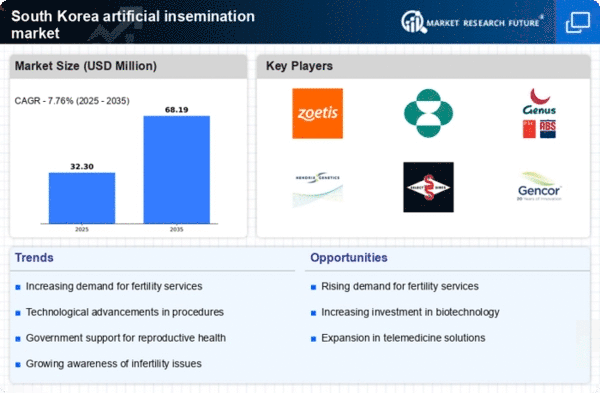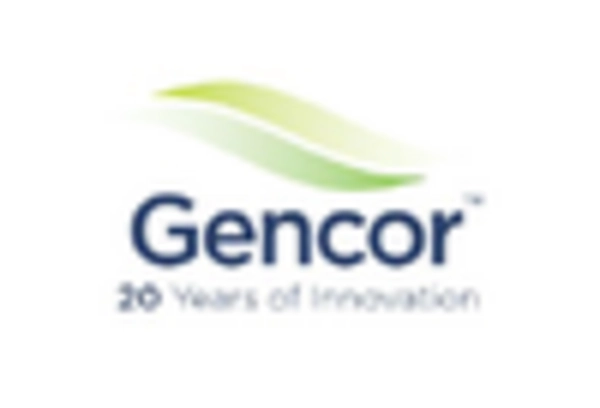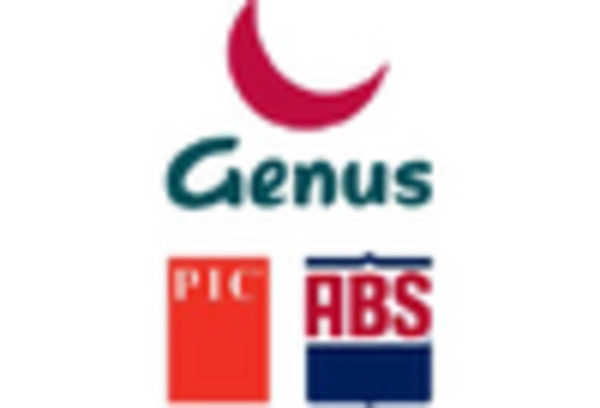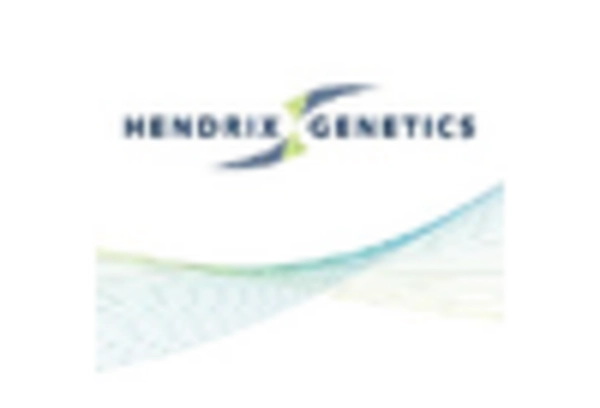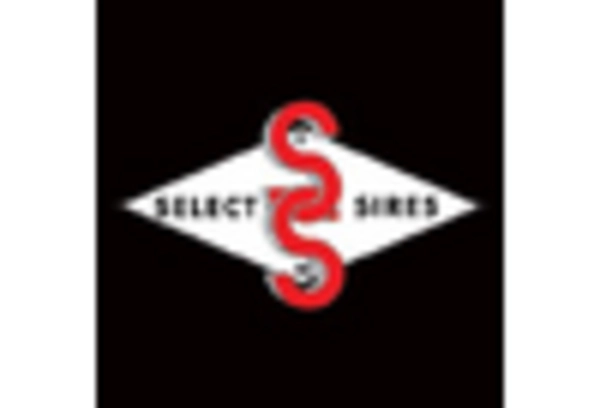Rising Infertility Rates
The increasing prevalence of infertility in South Korea is a critical driver of the artificial insemination market. Recent statistics indicate that approximately 15% of couples in South Korea experience difficulties in conceiving, which has led to a heightened demand for assisted reproductive technologies. This trend is further exacerbated by lifestyle factors such as delayed marriage and childbearing, which are prevalent in urban areas. As more couples seek solutions to their fertility challenges, The artificial insemination market is poised for growth as the government recognizes this issue and is likely to implement policies that support fertility treatments, thereby enhancing the market's potential. The rising infertility rates not only create a demand for artificial insemination services but also encourage advancements in related technologies, making this a pivotal driver in the industry.
Government Funding and Subsidies
Government initiatives aimed at supporting reproductive health are a significant driver of the artificial insemination market. In South Korea, the government has introduced various funding programs and subsidies to alleviate the financial burden associated with fertility treatments. These initiatives are designed to encourage couples to pursue artificial insemination, thereby increasing the overall demand for these services. Recent reports suggest that government funding for fertility treatments has increased by over 30% in the past few years, reflecting a commitment to addressing the country's declining birth rates. This financial support not only makes artificial insemination more accessible but also stimulates the growth of the industry by attracting new players and fostering competition among service providers. As government support continues, the artificial insemination market is likely to thrive.
Increased Awareness and Acceptance
There is a growing awareness and acceptance of artificial insemination as a viable option for family planning in South Korea. Educational campaigns and media coverage have played a significant role in demystifying the process and addressing misconceptions surrounding fertility treatments. As societal attitudes shift, more individuals and couples are likely to consider artificial insemination as a legitimate path to parenthood. This cultural transformation is reflected in the increasing number of fertility clinics and services available, which cater to a diverse clientele. The artificial insemination market is benefiting from this trend, as more people are willing to invest in reproductive health solutions. Furthermore, the acceptance of various family structures, including single parents and same-sex couples, is expanding the market's reach, indicating a promising future for the industry.
Changing Demographics and Family Structures
The evolving demographics and family structures in South Korea are shaping the landscape of the artificial insemination market. With an increasing number of women prioritizing their careers and education, there is a noticeable trend towards delayed childbearing. This shift has resulted in a growing demand for artificial insemination services as women seek to conceive later in life. Additionally, the rise of single-parent households and same-sex couples seeking to start families is further diversifying the market. As societal norms continue to evolve, the artificial insemination market is adapting to meet the needs of a broader range of clients. This demographic shift not only increases the potential customer base but also encourages innovation in service offerings, making the industry more dynamic and responsive to changing societal expectations.
Technological Innovations in Reproductive Health
Technological advancements in reproductive health are significantly influencing the artificial insemination market. Innovations such as improved cryopreservation techniques, genetic screening, and artificial intelligence in embryo selection are enhancing the success rates of artificial insemination procedures. In South Korea, the integration of cutting-edge technology in fertility clinics is becoming increasingly common, leading to better outcomes for patients. The market is witnessing a surge in demand for these advanced services, as couples seek higher success rates and personalized treatment plans. Additionally, the development of telemedicine platforms allows for greater accessibility to fertility specialists, further driving the market's growth. As technology continues to evolve, it is expected that the artificial insemination market will expand, offering more effective solutions for those facing fertility challenges.


